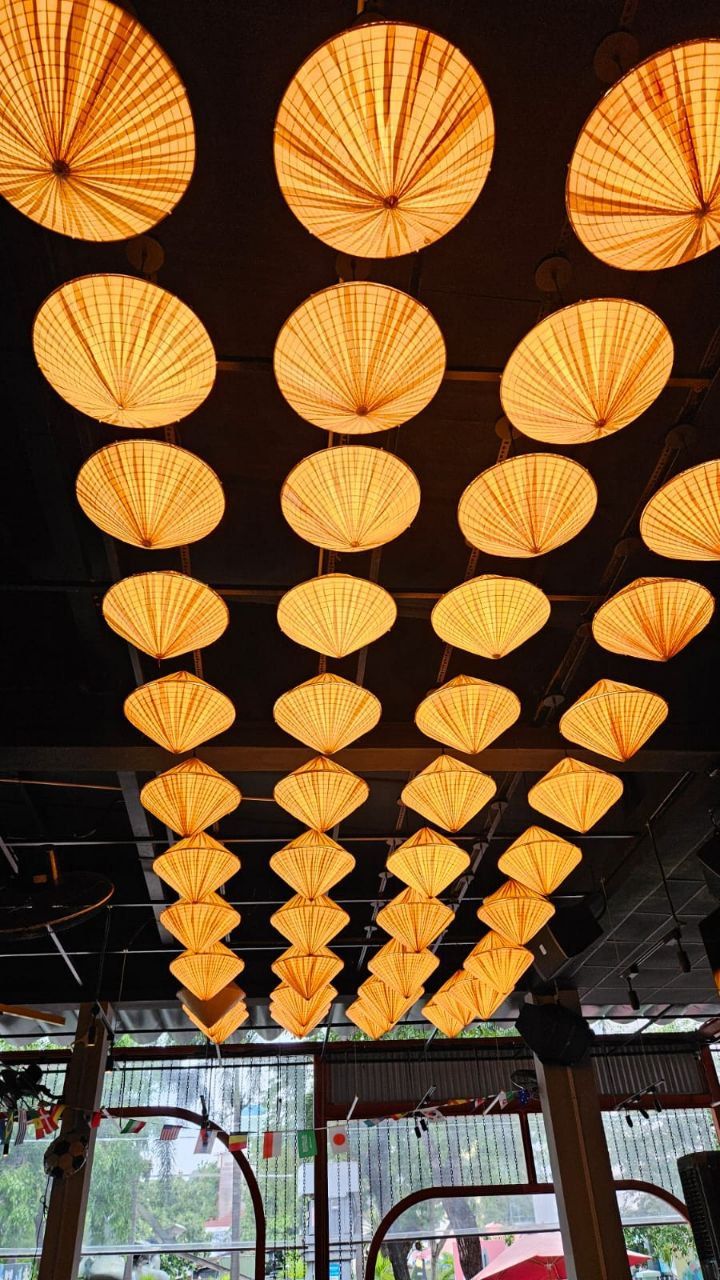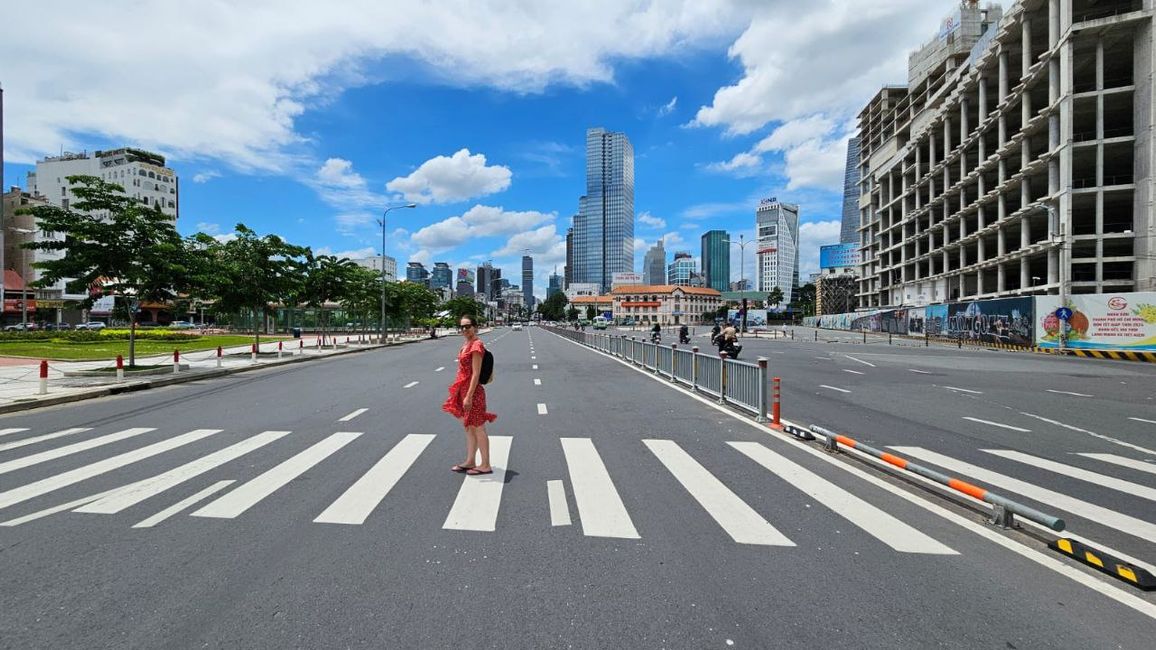Bajawa and four traditional villages
Published: 24.09.2024
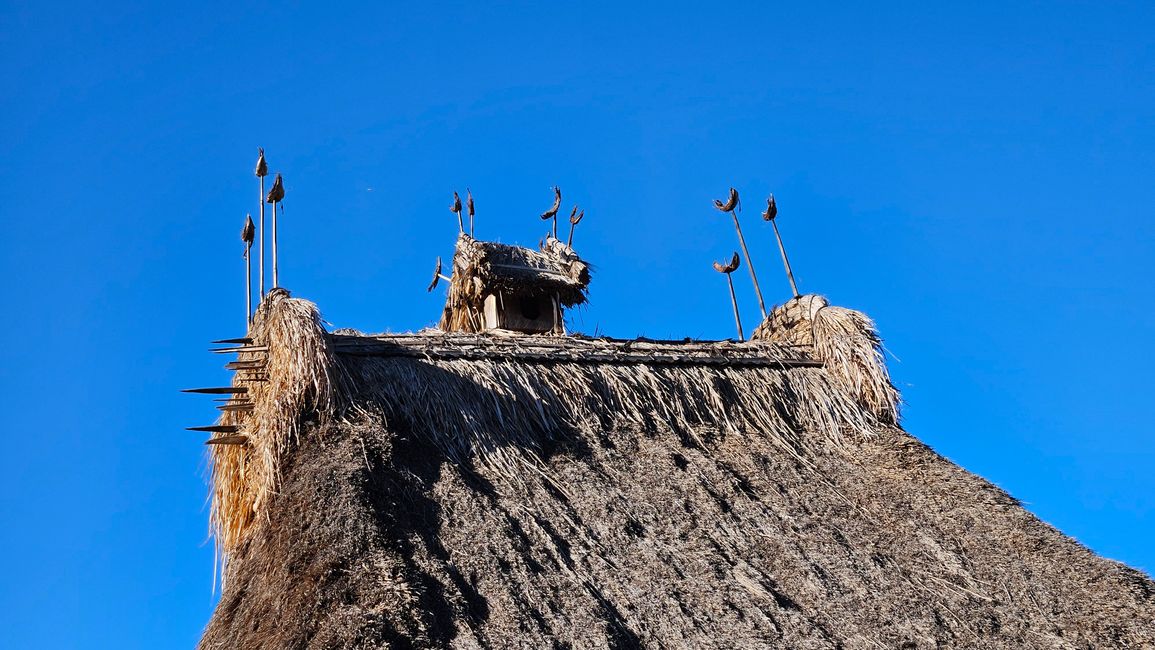
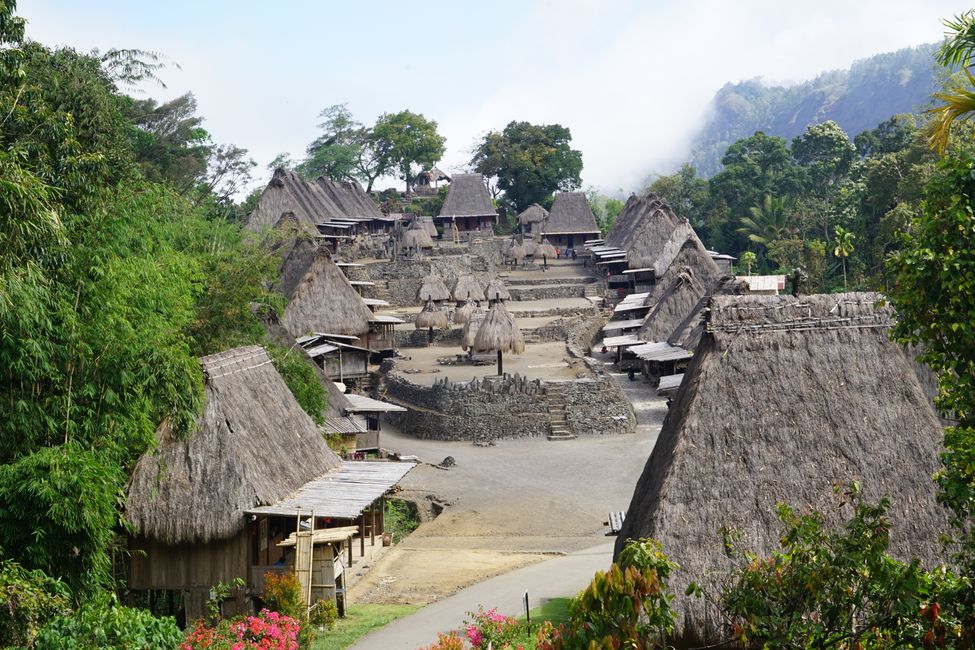
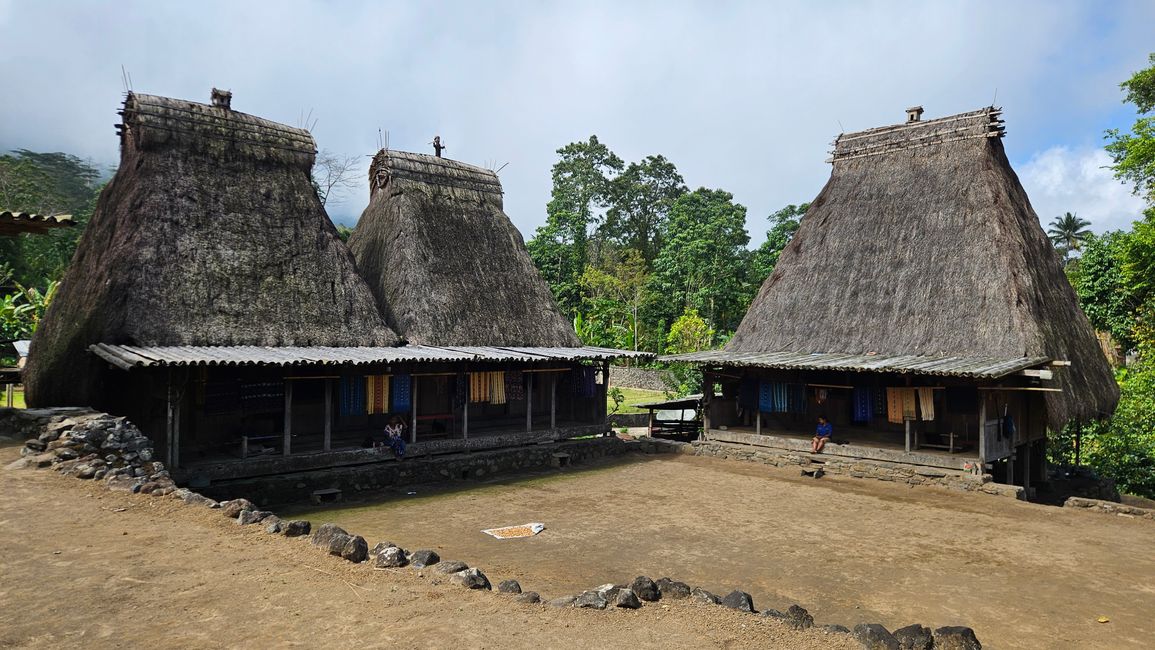
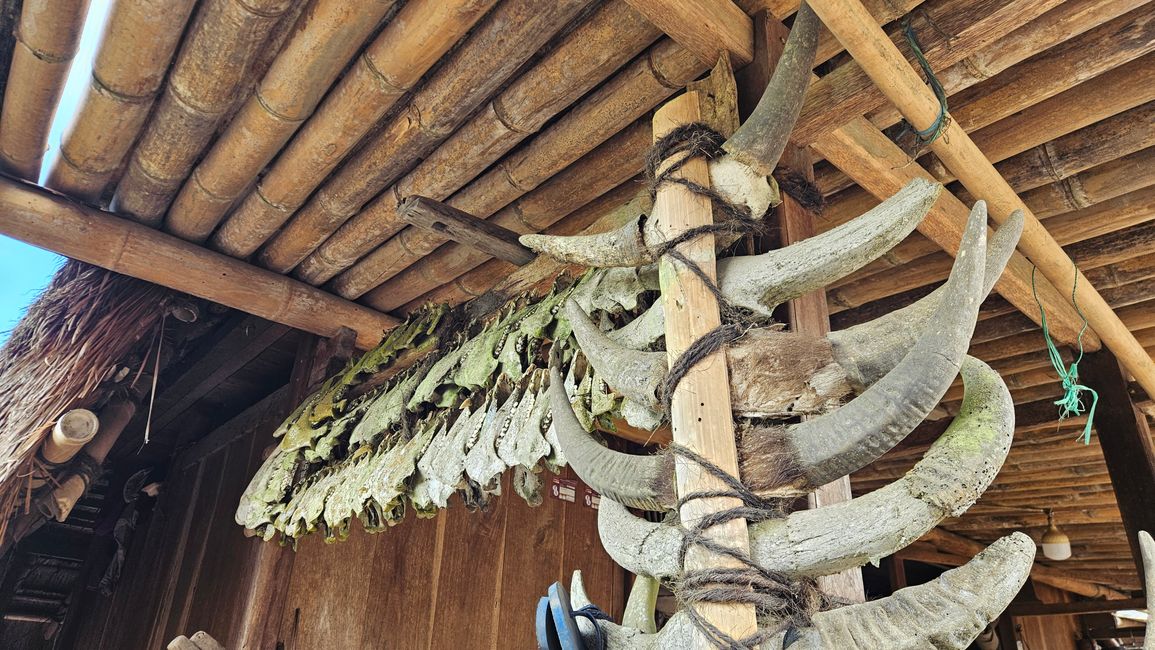
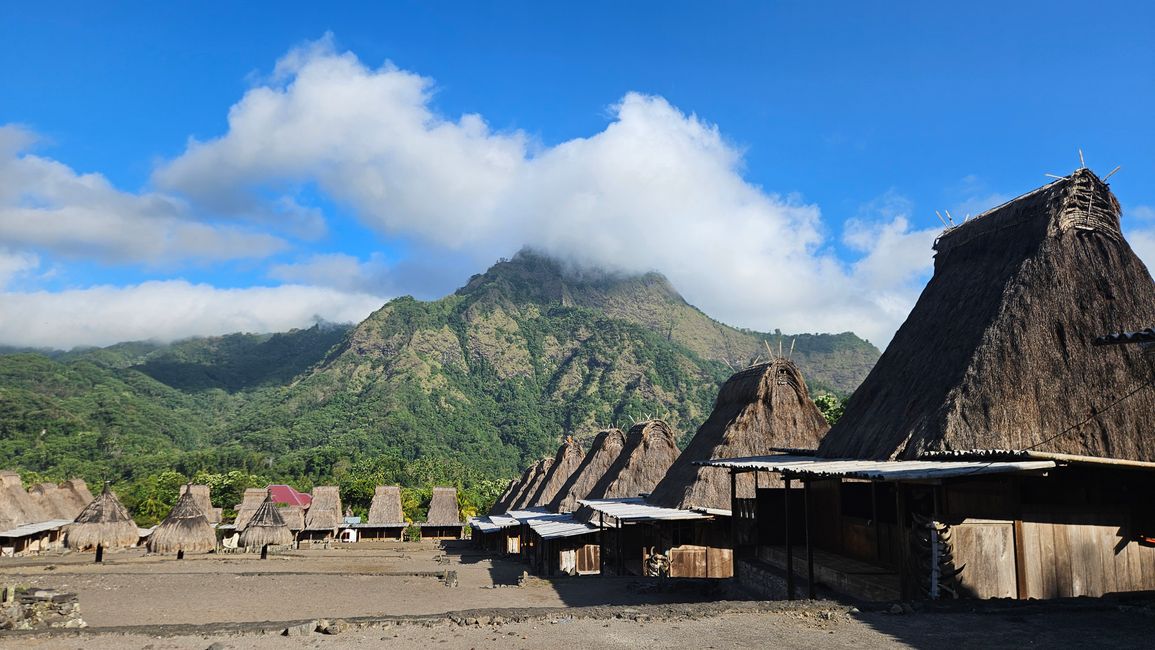
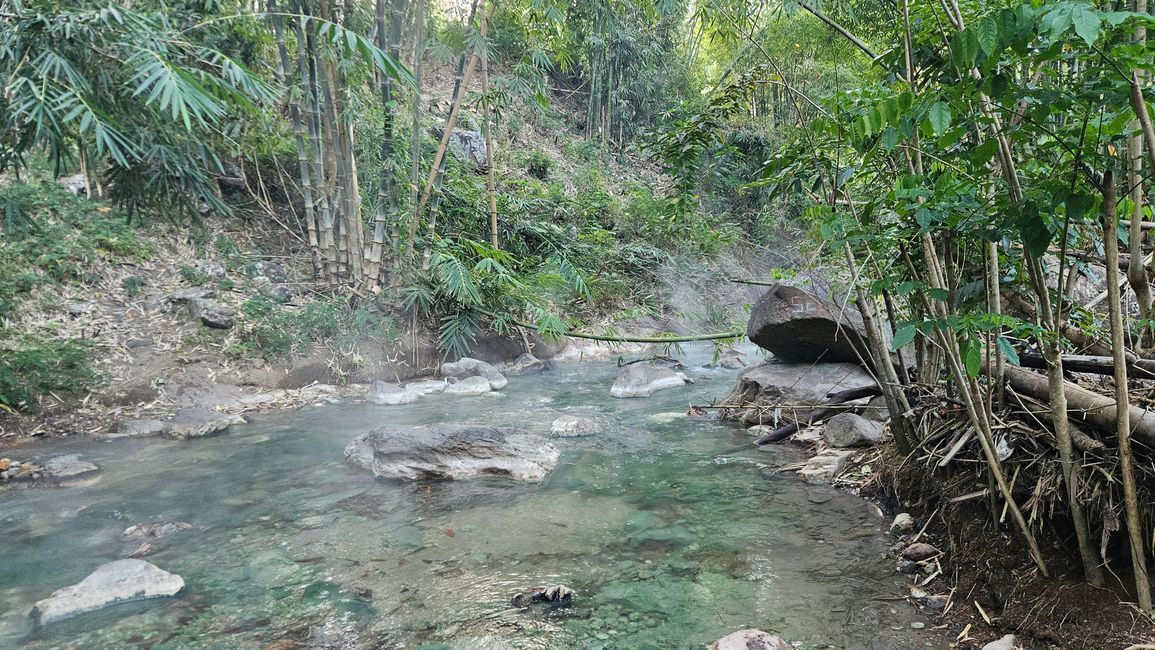
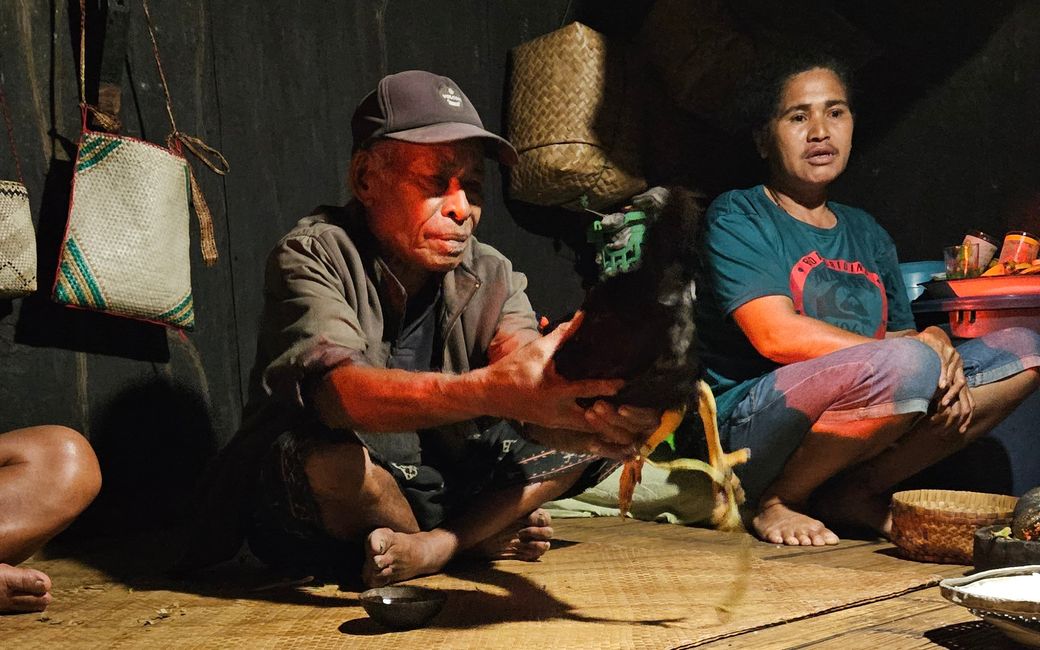
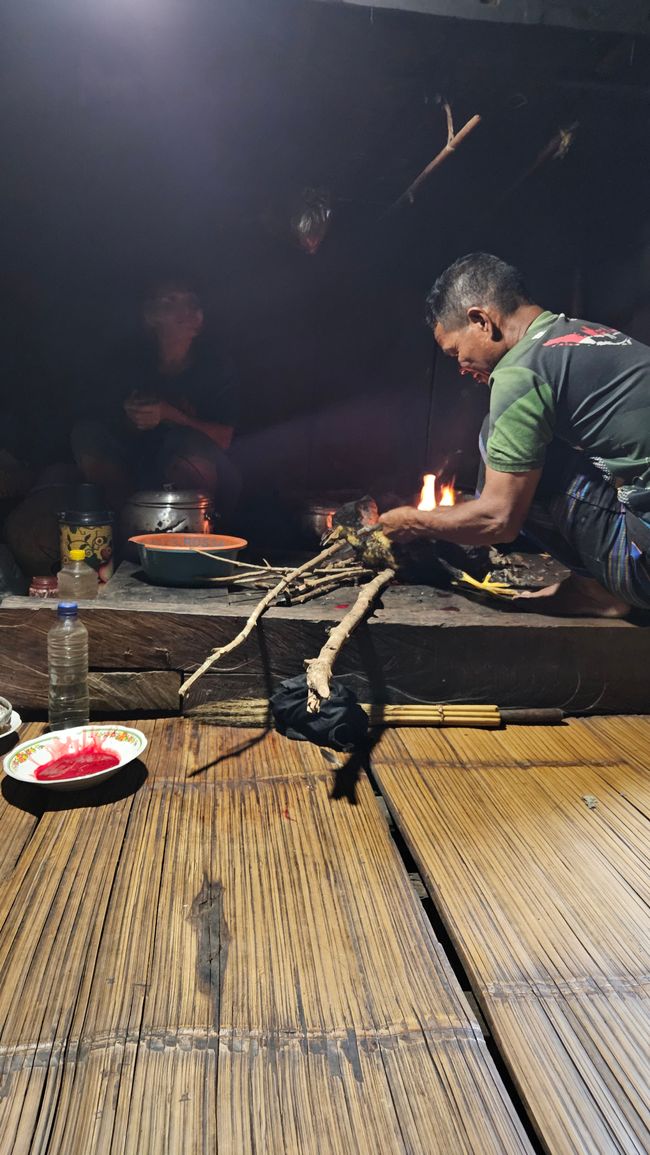
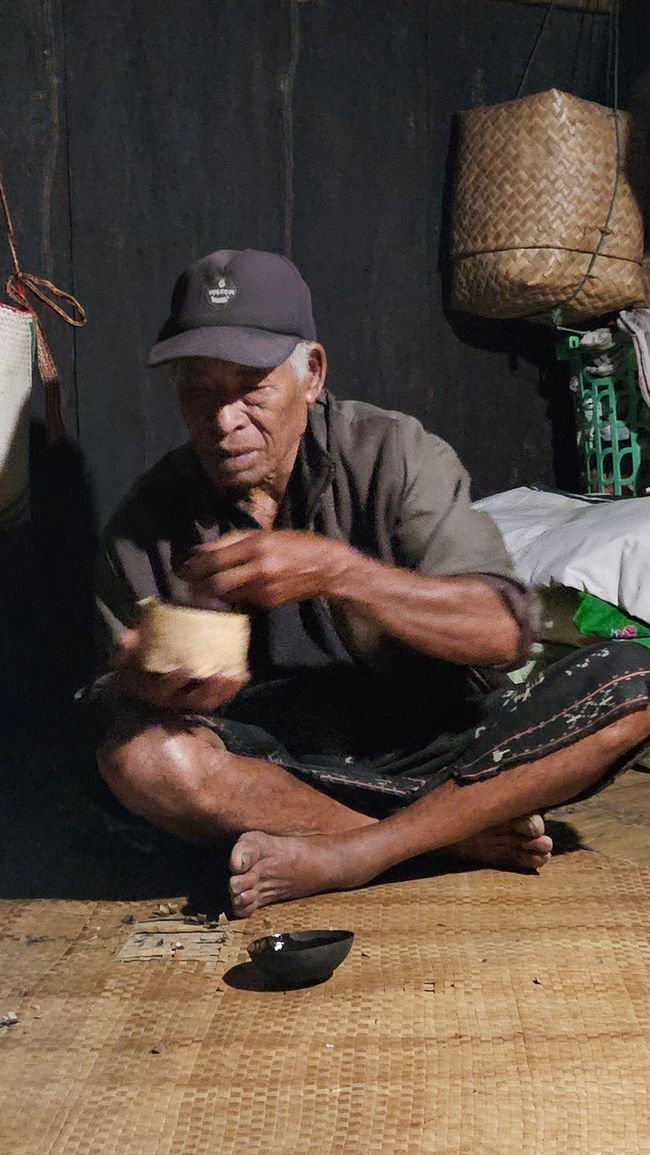
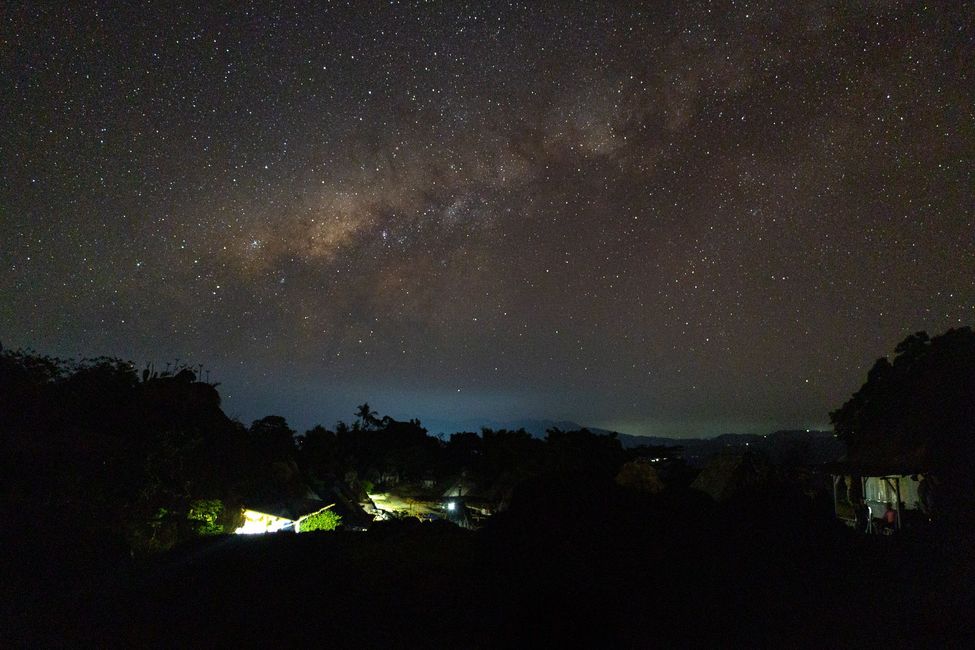
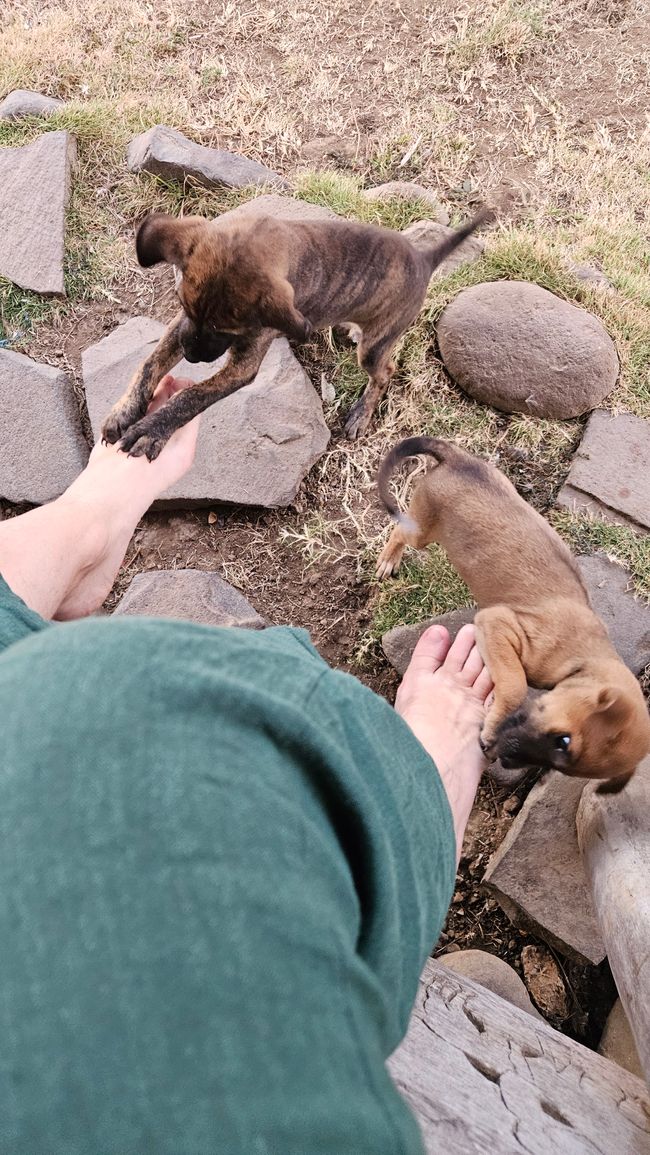
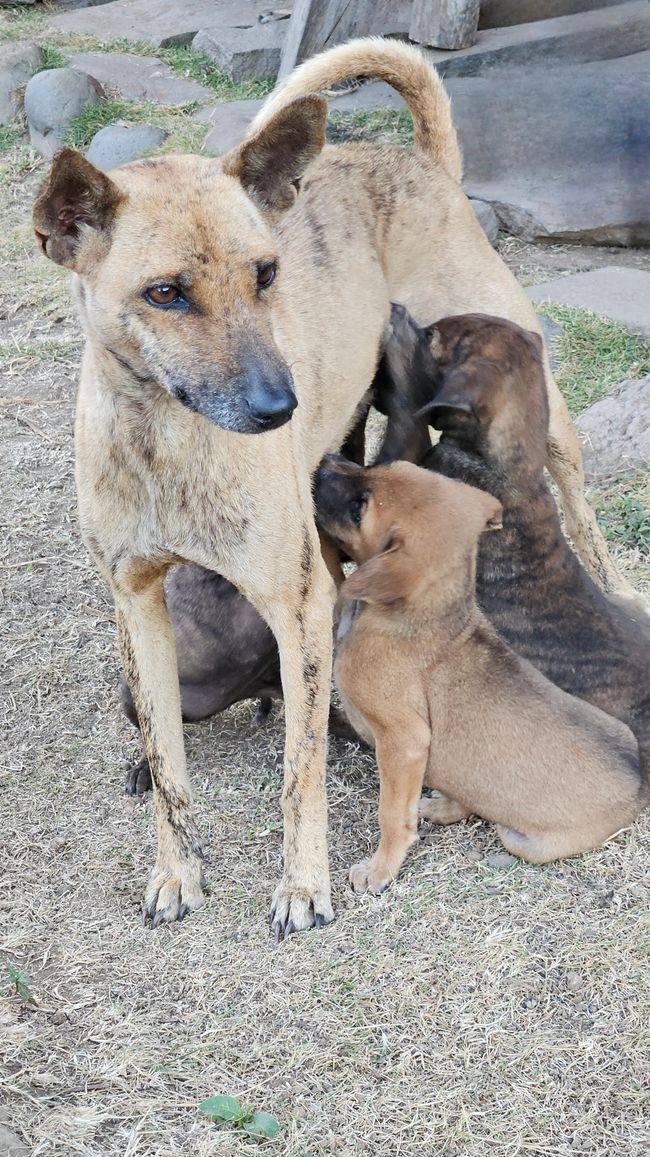
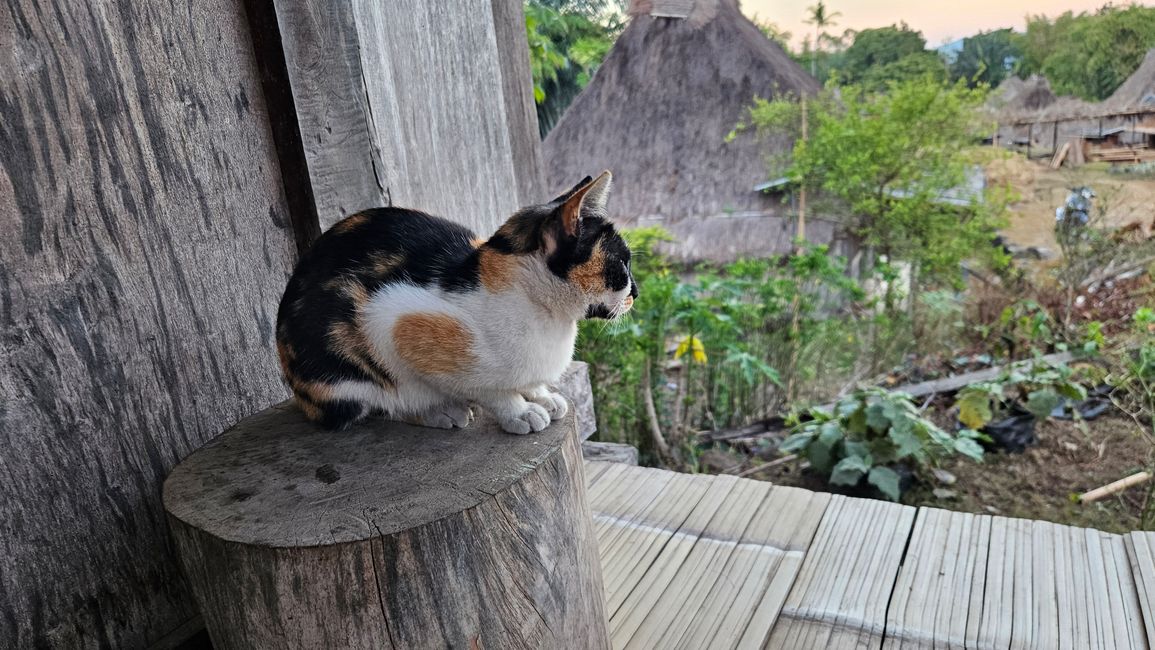
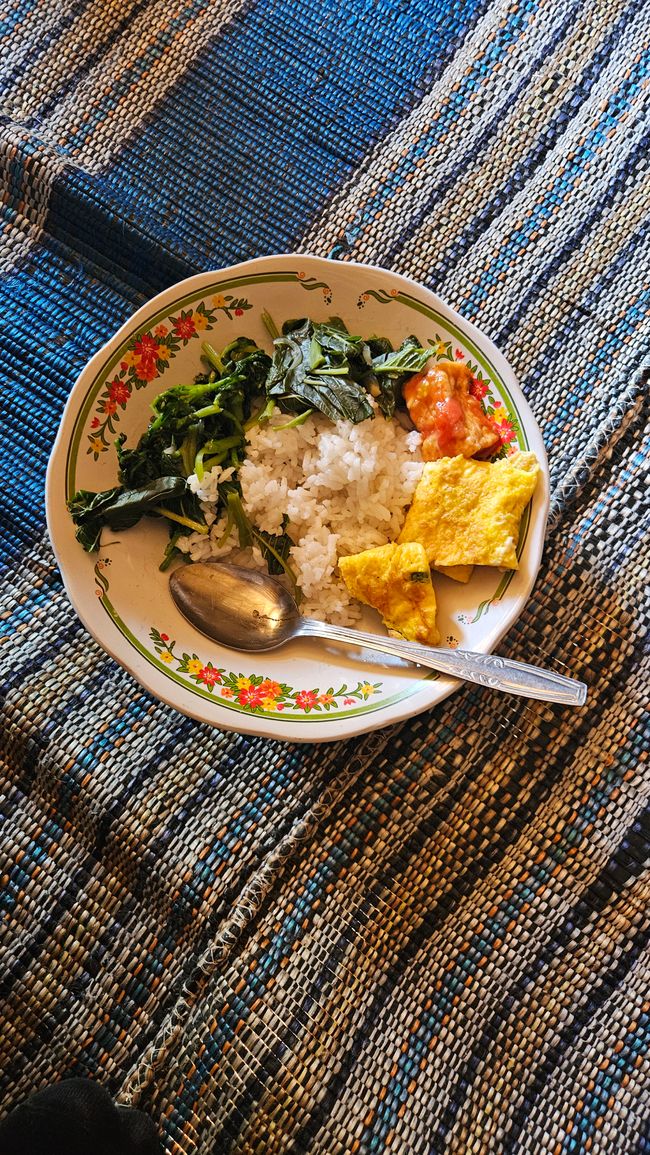
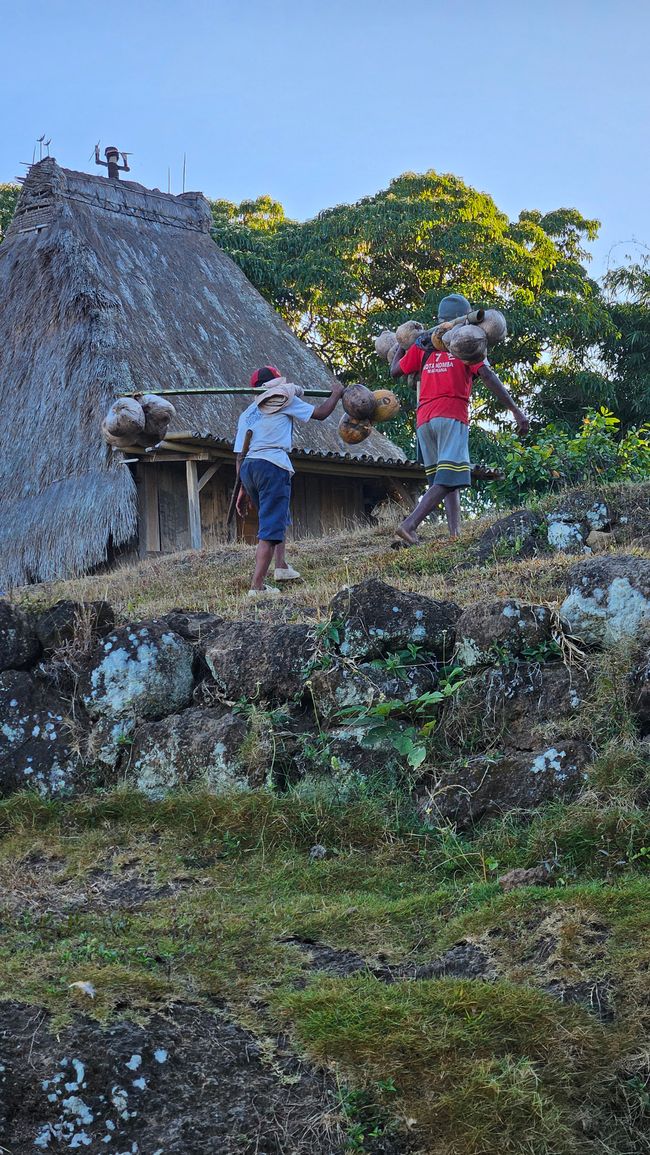
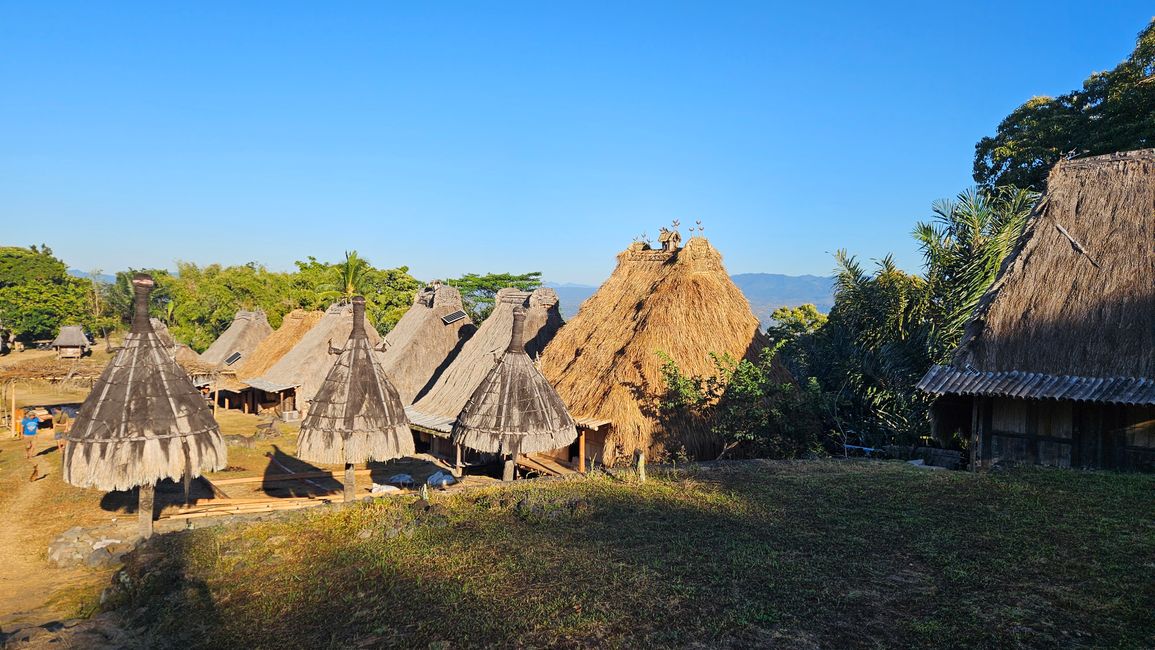

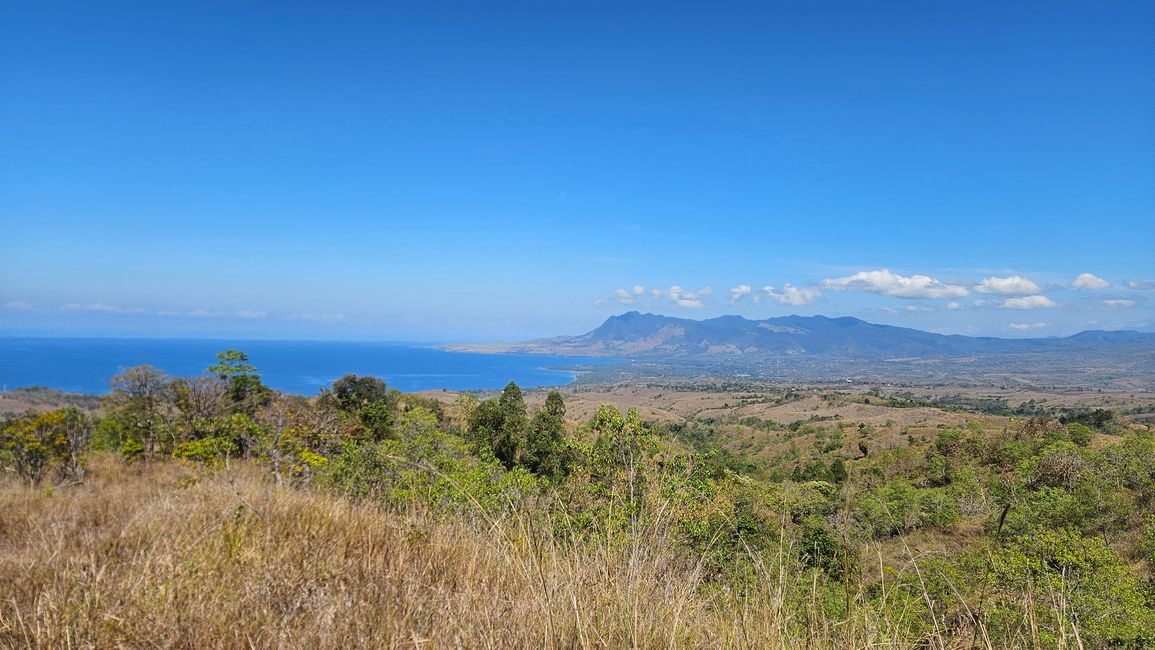
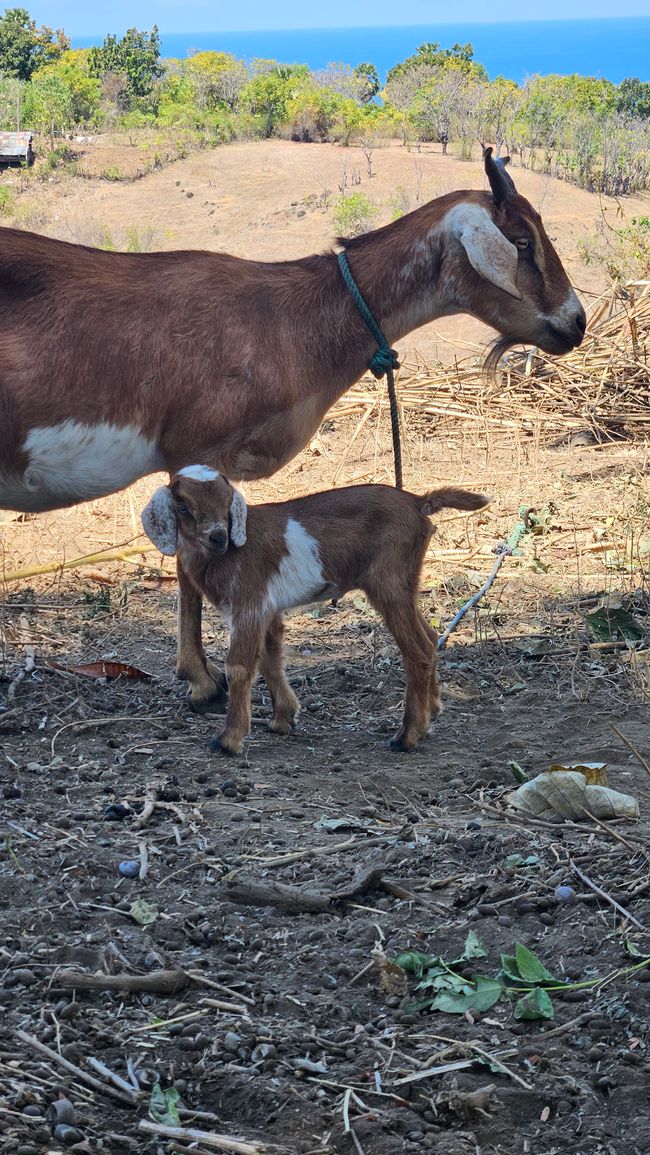
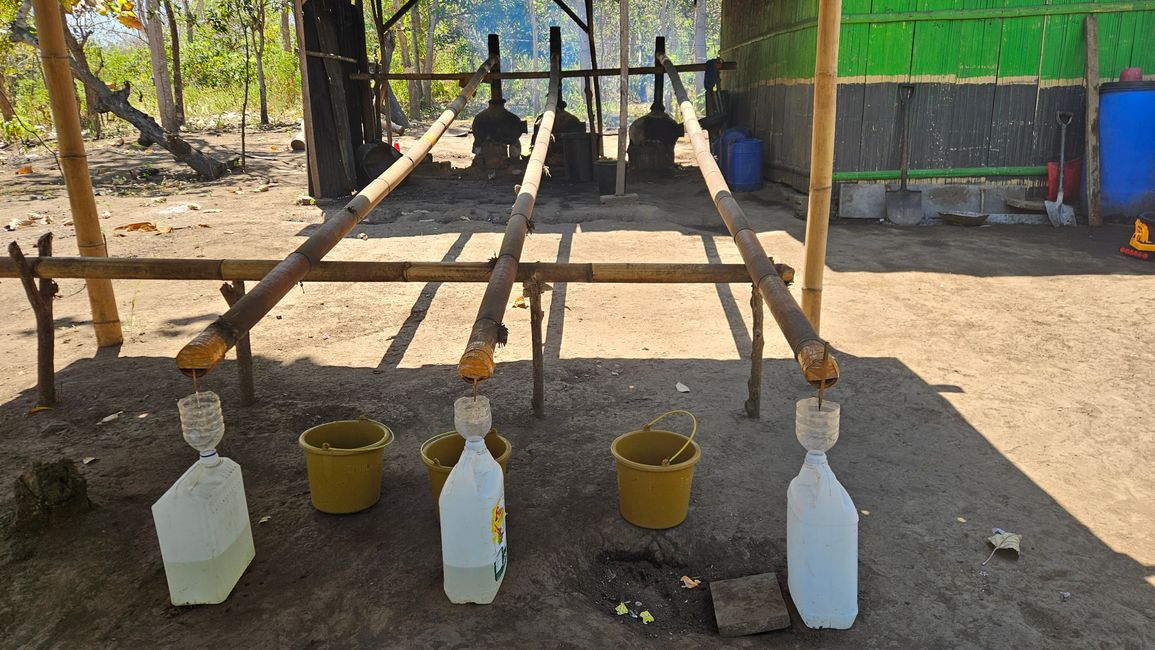
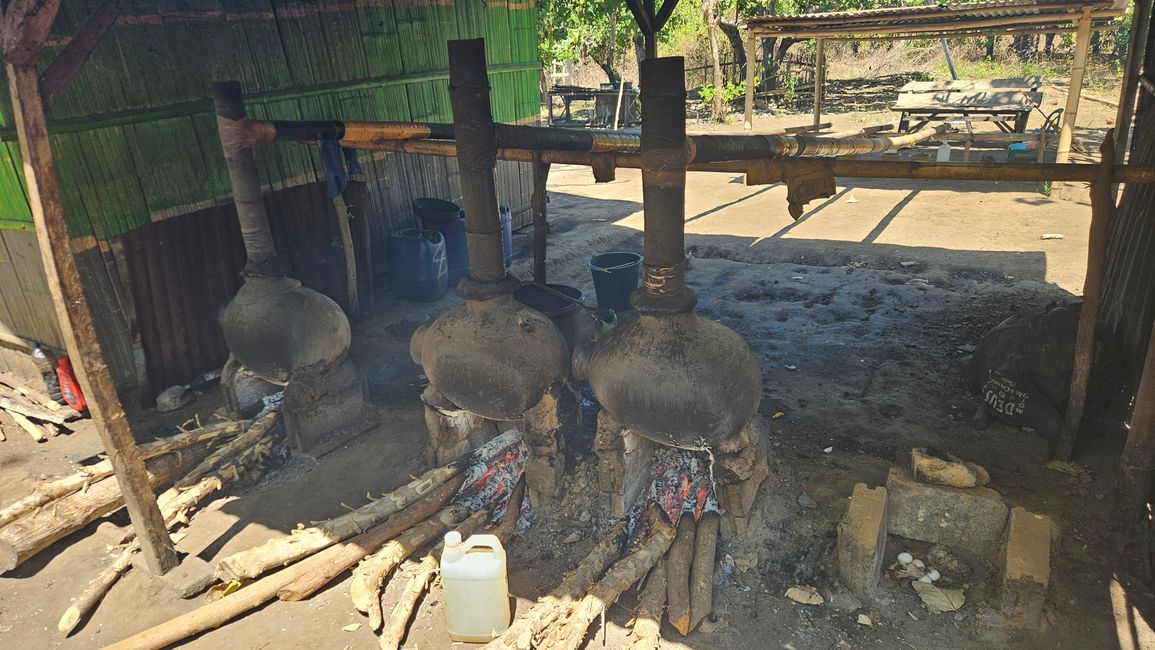
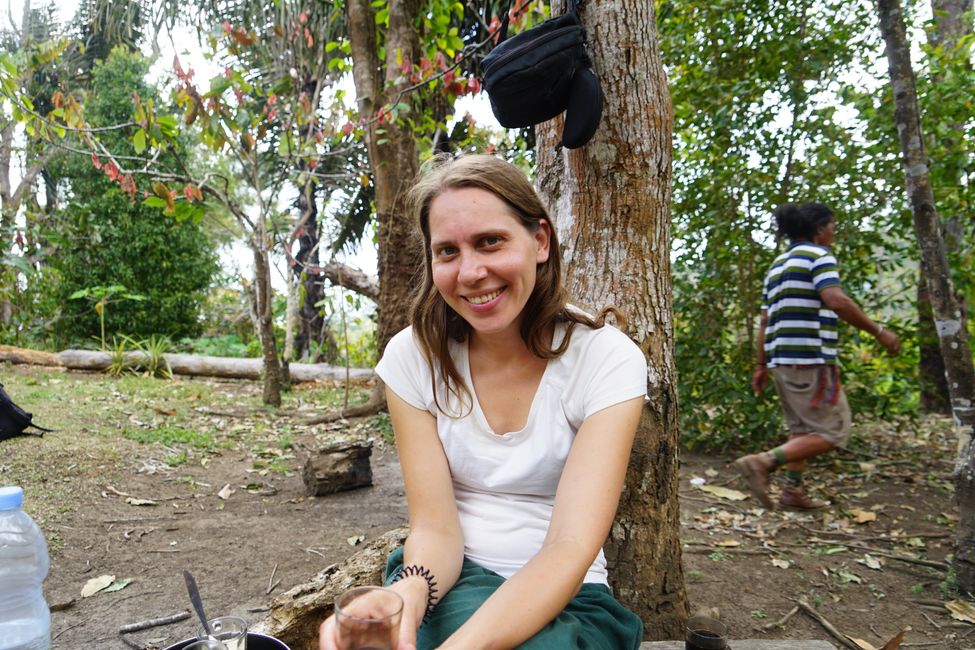
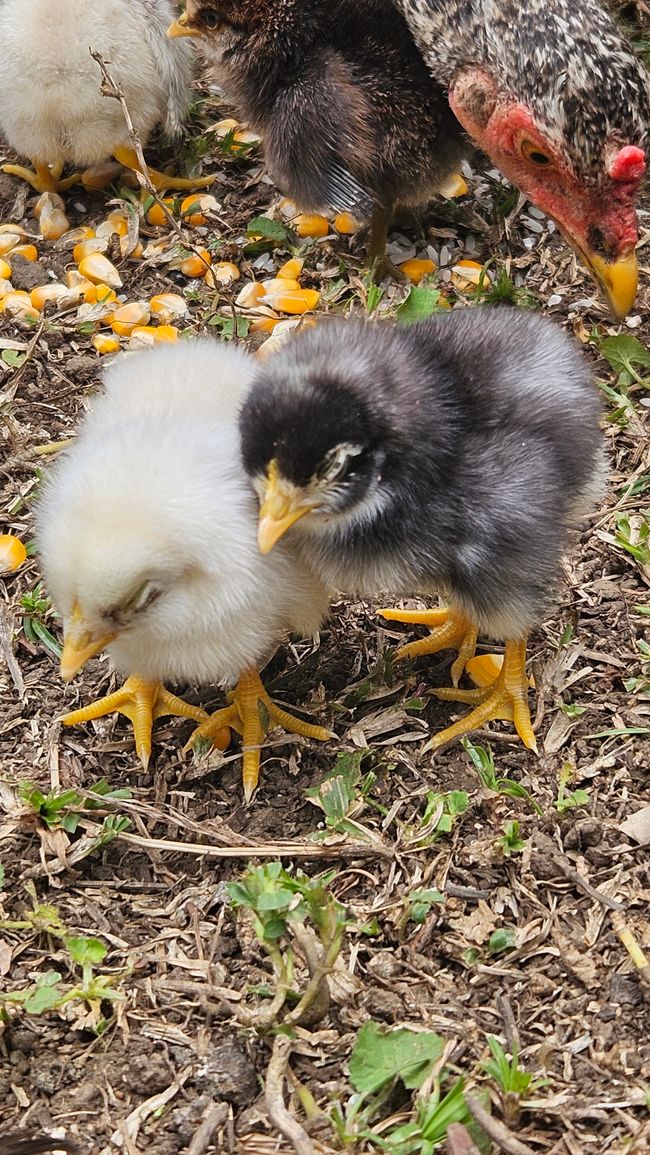
Subscribe to Newsletter
With Lara and Sebastian, I traveled further east to Bajawa, where there are several traditional villages like Wae Rebo near Ruteng that can be visited. Since we had arrived in Bajawa by noon, we contacted William, a local guide, who took us to the (tourist-friendly) traditional villages of Luba, Bena, and Gurusina. The huts are built in the traditional Ngada style, with small figures or houses on the roofs indicating the heads of the local clans, and buffalo horns reminding us of past sacrificial festivals.
The last stop was the Malanage Hot Springs, a confluence of a cold stream and a hot spring. Right in the middle, there’s a spot that is neither too hot nor too cold, where Lara and I sat for an hour, relaxing while Sebastian drank Arak with the locals.
In the evening, Lara and I had another appointment with William to go to Belaraghi. While you can visit Luba, Bena, and Gurusina on your own and spend the night with the locals there, you need a guide for Belaraghi, or rather: William. He was the first outsider to seek out the village 18 years ago and, after several unsuccessful attempts and a 3-day hike through the jungle, eventually found it (at least that’s how he tells it). Nowadays, there is a paved road to the village entrance, but William remains the only one allowed to stay there with guests. Along with Lara and me, Nicole (from Italy) and Lewis (from the UK) were also there.
As in Luba, Bena, and Gurusina, all huts in Belaraghi are built the same way: they are raised on stilts and consist of two rooms that are lined up in succession and connected by a small door. While every guest is allowed to immediately enter the front living room, that’s not the case for the back room, which serves as a kitchen and bedroom. Although the residents of Belaraghi are Christians, they still believe in their traditional animistic customs. This includes the belief that deceased ancestors continue to reside in their homes, and guests must be introduced to the ancestors in a ceremony where a rooster is sacrificed, followed by a festive meal. The back room can be accessed for the ceremony.
We were greeted by Mama Nella and her husband Papa Vempi, Papa Aurelius, and Mama Rene with tea in the living room, where William prepared us for the upcoming ceremony (he also acted as a translator). Shortly afterward, we were invited into the back room, and the ceremony began.
For the four of us, the sacrifice of the rooster was not an everyday sight and it didn’t have to be. Afterwards, it turned out that we all at least try to eat vegetarian. But of course, one cannot simply say during a ceremony, 'I won’t eat that,' when a rooster has been sacrificed just for you. So, we all dutifully ate a few pieces, accompanied by red rice, vegetables, and of course, plenty of Arak and palm wine served in coconut shells. Despite the language barrier, it was a very nice evening, and before we fell into bed at Mama Rene’s, utterly tired (at least I was), we enjoyed the incredibly beautiful starry sky without light pollution.
The next morning, when I got up and sat on the terrace, three little puppies came running over and started nibbling at my toes. It was so cute that I almost took one with me! When Nicole and Lewis suggested at breakfast that they wanted to return to Belaraghi for a few days after a night in Bajawa to help with daily chores in the village, I was so taken with the idea that I discarded my own plans and joined them. When William asked the family if that was okay with them, Mama Nella was so happy that she immediately called her children in Java to tell them about it.
After saying goodbye, we went for a small hike from Belaraghi to Aimere, where we had a great view of Gunung Inerie the whole time. I initially wanted to climb this volcano as well, but after reading some Google reviews that described the trail as 'very poorly maintained' and 'dangerous,' I abandoned that plan.
In Aimere, William’s driver was already waiting for us to take us back to Bajawa. On the way back, we spontaneously made a little stop in William’s garden, where his wife cooked lunch for us, and we could see the chicks that had hatched that morning. Back in Bajawa, Nicole, Lewis, and I also bought some groceries that cannot be grown in Belaraghi to bring as a small gift the next day.
Subscribe to Newsletter
Answer
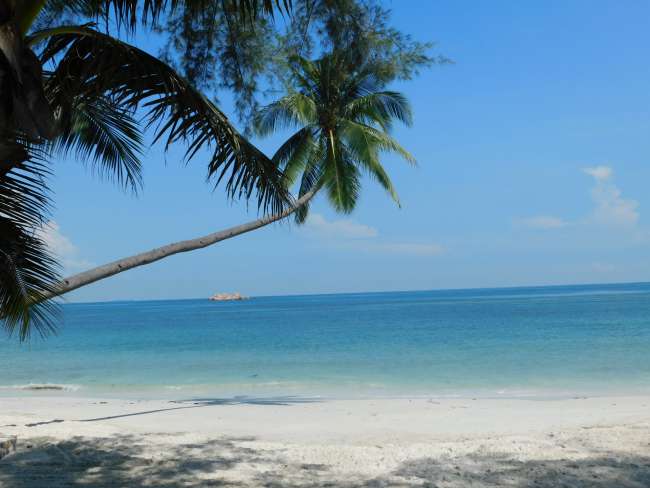
Travel reports Indonesia
